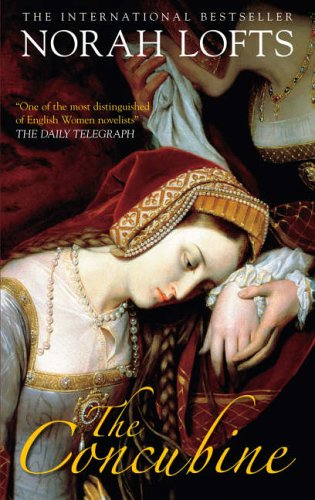The Concubine
The popularity of historical fiction about historical women in general and Boleyn women in particular has resulted in the republication of this masterful work by a giant in the field. Anne Boleyn, a pawn in the private battle between her ambitious father and his great enemy Cardinal Wolsey, is summarily dismissed from Queen Katherine’s household. They have prevented her love match to Lord Henry Percy. No sooner is the troublesome wench safely out of the way than Wolsey’s friend the King hastens to her side.
His desires follow three parallel tracks—to seduce Anne, to set aside his marriage, to sire a son and heir—but soon all three converge. When he plights his troth to Anne and she to him, they never imagine it will lead to religious and political upheaval across a peaceful England and a warring Europe.
Trapped in her gilded cage, hated by the people, regarded by her waiting woman as the shining hope of a new religious movement, Anne welcomes Wolsey’s downfall but knows she must capitulate to Henry or lose her chance at marriage. Disappointed to find her no different in bed than other women, Henry becomes impatient and tyrannical. Her pregnancy hardens his resolve to make her his queen and break with Rome, even as his cruelty increases and his eye wanders towards Jane Seymour. During her trial, confronted by death, Anne redeems herself by her courage and resignation to her fate.
Lofts takes us into the mind and heart of the doomed Wolsey, the discarded Katherine, the disheartened Henry Percy, Anne’s courtiers, and most significantly her waiting-woman, Emma Arnett. The corridors of power and intrigue in Tudor times, in all its many complexities, are made vividly real and potent. Lofts displays a true gift for human drama, populating the novel with impeccably crafted characters, and filling it with fact and detail.










